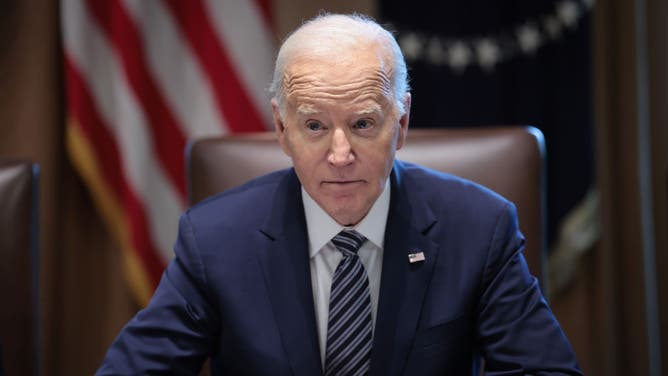Pfizer Sued For Making Misleading COVID Vaccine Claims
Pfizer may finally be facing some consequences for how it handled the research, development and release of its COVID vaccine.
On Monday, the state of Kansas and Attorney General Kris Kobach, filed a lawsuit against the pharmaceutical giant, alleging that Pfizer misled the public about the mRNA vaccine. Specifically, that the company purposefully hid information about the true safety and efficacy of its vaccine.
"Pfizer said its COVID-19 vaccine was safe even though it knew its COVID-19 vaccine was connected to serious adverse events, including myocarditis and pericarditis, failed pregnancies, and deaths," the lawsuit reads. "Pfizer concealed this critical safety information from the public."
It also, according to the suit, did not inform the public about the vaccine's rapidly waning efficacy.
"Pfizer said its COVID-19 vaccine was effective even though it knew its COVID19 vaccine waned over time and did not protect against COVID-19 variants," the suit alleges. Pfizer then "concealed this critical effectiveness information from the public."
It's undoubtedly true that Pfizer did not tell the public about rapid waning efficacy, as well as the limited ability to protect against new variants. Whether or not they knew, or should have known, is another question. One thing is for certain though: they never studied whether the vaccine would protect against infection or transmission. Though the company encouraged "experts" in claiming that it did, leading to the rapid spread of vaccine mandates.
The suit also targets Pfizer for working to censor social media speech that "questioned Pfizer's claims about its COVID-19 vaccine." To that end, Pfizer certainly had some help from the Biden administration. The release of emails from administration employees showed how hard people like Andy Slavitt worked to remove any content that contradicted their beliefs.
READ: Emails Reveal White House Official Asked Facebook to Censor Tomi Lahren on COVID Vaccines

WASHINGTON, DC - MAY 15: U.S. President Joe Biden delivers remarks while meeting with the Joint Chiefs and Combatant Commanders in the Cabinet Room of the White House May 15, 2024 in Washington, DC. Biden will host a dinner later this evening for the same group. (Photo by Win McNamee/Getty Images)
Pfizer Facing Consequences For Alleged Misleading Claims
The lawsuit also alleges that Pfizer's "misrepresentations" led to $75 billion in revenues, and that it's "actions and statements related to its COVID-19 vaccine" are in violation of "previous consent judgments with the State of Kansas."
"Pfizer made multiple misleading statements to deceive the public about its vaccine at a time when Americans needed the truth," Kobach said in a statement.
As an example of misleading statements from Pfizer about the vaccine's safety, the lawsuit uses Pfizer Chairman and CEO Albert Bourla's own words against him.
"On January 18, 2023, when asked whether the Pfizer COVID-19 vaccine caused strokes or myocarditis, Pfizer Chairman and CEO Dr. Bourla said, ‘We constantly review and analyze the data. We’ve seen not a single [safety] signal although we have distributed billions of doses.’"
That statement was an indefensible mischaracterization from Bourla; by 2023 it was obvious that Pfizer's mRNA vaccine was linked to an increased risk myocarditis, especially in young men. Several studies have since confirmed that such a causal link exists.
READ: New Study Confirms Risk Of COVID Vaccine Side Effects Dismissed By 'Experts'
For its part, Pfizer denies any wrongdoing.
"The representations made by Pfizer about its COVID-19 vaccine have been accurate and science-based," a statement by Pfizer read, according to Reuters.
It's hard to reconcile that Pfizer made "accurate" representations, when Bourla's on the record making obviously inaccurate ones. Beyond this denialism of myocarditis, he also said that the vaccine showed 100% efficacy against COVID cases. Despite that statement being totally unsupported by the evidence, and used to enact world-changing policy that caused harm to millions of people.
Pfizer though, enjoyed the protection of liability shields, media promotion, and "expert" misinformation. Hopefully this lawsuit, which the Kansas attorney general says will be joined by other states, is successful in finally holding them accountable for what they said and did during the pandemic.